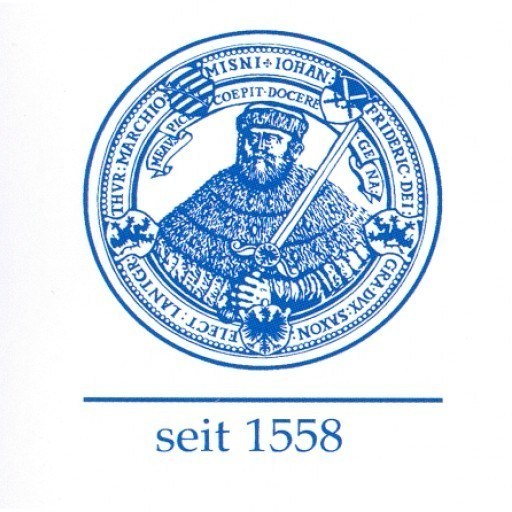Photos of university / #unijena
Economics at the University of Jena offers a comprehensive and rigorous academic program designed to equip students with the analytical skills and theoretical knowledge necessary to understand complex economic phenomena. The programme emphasizes a solid foundation in microeconomics, macroeconomics, econometrics, and economic policy, preparing graduates for diverse career paths in business, finance, public administration, and research. Students will explore key topics such as market dynamics, financial systems, economic development, and global economic integration, gaining insight into the factors that shape economic decision-making at both individual and societal levels. The curriculum combines theoretical coursework with practical data analysis and quantitative methods, fostering critical thinking and problem-solving abilities vital for navigating the complexities of modern economies. The programme is delivered by experienced faculty members known for their active research and academic excellence, ensuring students receive up-to-date knowledge and perspectives. Additionally, students have opportunities for internships, research projects, and international exchanges, enhancing their practical skills and global outlook. The University of Jena’s supportive academic environment encourages collaboration and independent thinking, preparing graduates for successful careers in academia, government, industry, or consultancy. With a focus on both theoretical understanding and real-world application, the Economics program at the University of Jena aims to develop well-rounded, analytically skilled economists capable of contributing to economic policy and business strategy worldwide.
Educational organisation
First semester:- "Empirical Methods"
- "Approaches to Economic Science"
- one basic course
- two courses in specialisation area
Second semester:
- "Group Dynamic, Moderation and Presentation Part I"
- three basic courses
- two courses in specialisation area
- seminar
Third semester:
- "Group Dynamic, Moderation and Presentation Part II"
- two basic courses
- two courses in specialisation area
- seminar
Fourth semester:
- one course in specialisation area
- Master's thesis
For part-time students, all time-limits mentioned in the study regulations are doubled.
Study abroad unit(s)
Studying at another university is voluntary.Internships
There are no integrated internships.Forms of assessment
The examination depends on the module description. Typically, it is a mixture of written exams, homework, presentations and discussions in the classroom.Language requirements
Proficiency in English (level B2: IELTS Band 6.0 or higher, TOEFL iBT score 90 or above).Although the course programme is in English, some basic German language skills are recommended. This will also provide more opportunities to choose additional elective courses in the German language.
Academic requirements
- University degree with a duration of at least three years or
- Bachelor's degree with at least 180 ECTS credits and a duration of at least three years
- Final mark: 2.5 or better. Applicants with a Bachelor's degree which contains professional qualifications have to be among the top 65% of their year.
- Good pre-education in mathematics, statistics, and economics; minimum requirements: 22 ECTS in economics, 6 ECTS in mathematics, 6 ECTS in statistics
Enrolment fees
Semester fee (Student Services and Student Self-Government) including semester ticket for free use of public transport: approx. 190 EUR per semester and a one-off fee of 20 EUR for a multifunctional student ID (Thoska) cardCosts of living
We recommend that you budget at least 600 EUR per month for accommodation and food, and for books a further 50 EUR per semester.Arrival support
Students are advised to arrive at Jena University by 1 October for the winter semester. Before classes start Jena University offers an orientation week in order to introduce international students to the city and university. Information about the orientation week is sent with the letter of admission.Services and support for international students
At the Friedrich Schiller University Jena, the International Office assists all international students and can direct them to the department responsible for answering any questions they may have. Jena University has ERASMUS agreements with more than 200 European partners and 30 bilateral agreements with partners in Eastern and South-Eastern Europe, the USA, Canada, and Japan. The university has 2,200 international students from 85 countries.There is a comprehensive programme of counselling, administrative support, language courses, and tutoring for incoming students. The International Office also arranges accommodation for students who come to Jena on exchange or scholarship programmes.
The rooms in the student residences are distributed by Student Services ("Studentenwerk Thueringen": http://www.stw-thueringen.de). Private apartments are also available, but students must find them on their own. Student tutors assist incoming students by meeting them at the train station, showing them to their rooms, introducing them to the university and its facilities, familiarising them with the city of Jena, introducing them to student life, and helping them with their paperwork. Student associations and groups offer a wide variety of joint activities and events, tandem language courses, concerts, excursions, etc., all of which help the international students to feel welcome and integrated. The Language Centre offers German language courses at several different levels.
Accommodation
Accommodation in student residences is available. Please apply at the "Studentenwerk Thüringen" (http://www.stw-thueringen.de).For further information, please visit our website at http://www.stw-thueringen.de/english/housing/wohnen.html.
You can also look for single or shared private accommodation yourself. In the buildings of the university, there are numerous information boards with accommodation offers. Note, however, that the availability of private accommodation in Jena is rather limited.








